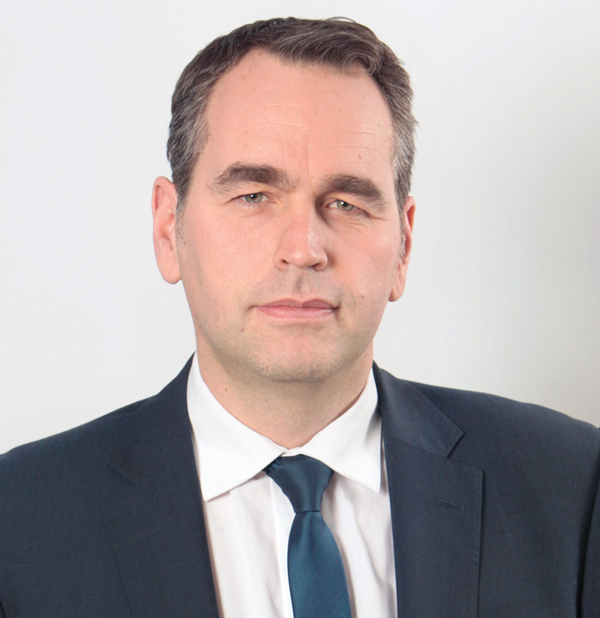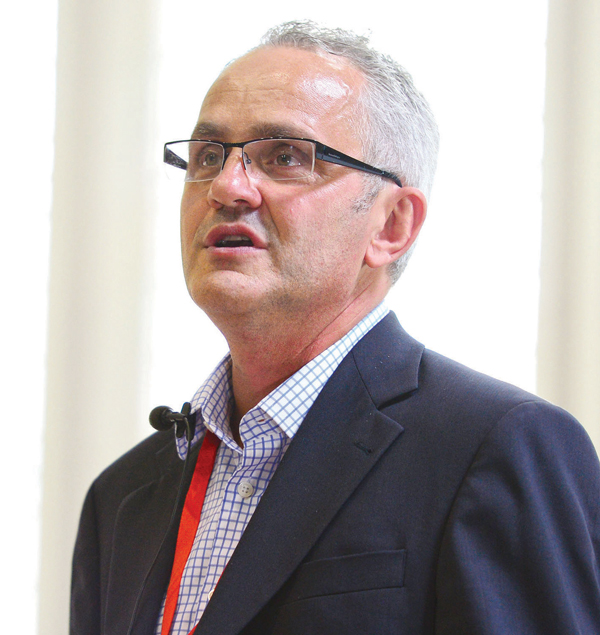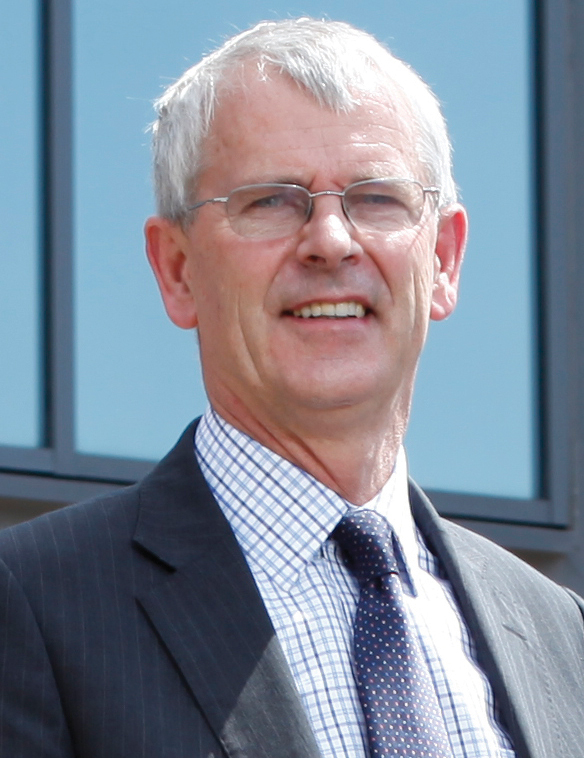Seventeen top heads have put their name to five proposals outlined in a report to help boost professional training for teachers.
In Developing Teachers, a document published by the Sutton Trust last Friday, they call on the three main political parties to ensure that all teachers and school leaders are entitled to professional development.
The ideas were drawn up after discussions with colleagues from 10 countries at a summit on professional development jointly organised by the Sutton Trust and the Bill & Melinda Gates Foundation in November.
They believe that the report’s five leading proposals will improve the quality of teaching, and feature case studies from home and abroad to illustrate their point.
These include filming lessons and looking back on them afterwards, training teachers to become coaches, and a programme to allow teachers to share and demonstrate best practice.
The report says these “debunk the myth of the lone teacher shutting their classroom door behind them to pursue their practice without any outside interference. The next step should be to ascertain the impact these programmes can have on student outcomes.”

Trust chief executive Dr Lee Elliot Major said: “Brilliant teaching can transform lives so it should shock us that today’s teachers do not all benefit from the professional training they deserve.
“We know that the quality of classroom teaching has by far the biggest impact on pupils, particularly those from poorer homes. Improving the continual professional development available to teachers should be a key priority in our drive to improve social mobility.”
The proposals for professional development backed by a College of Teaching and National College for School Leadership argue that improved teacher development will positively impact on pupils’ attainment, particular those from disadvantaged backgrounds. Before publication it was presented to education secretary, Nicky Morgan, shadow education secretary, Tristram Hunt, and minister of state for schools, David Laws.
Developing Teachers follows on from the Sutton Trust’s October 2014 report, What Makes Great Teaching, which reviewed more than 200 pieces of research to identify the elements of teaching with the strongest evidence of improving attainment.
THE FIVE PROPOSALS
Place greater trust in teachers and increase their autonomy:
The over-riding focus of the current school system is on identifying and dealing with the weak schools and the weak teachers. Government should actively encourage innovation in improving standards and trust school leaders’ ability to do this and drive the whole system up.
Strengthen professional development for all teachers:
Through good quality professional development, real improvements in teaching and attainment can take place. There should be a strong entitlement for all teachers and school leaders to professional development.
Use evidence to improve standards:
All school policies should be grounded in evidence and Ofsted should credit schools that use evidence effectively. New and existing teachers and school leaders should be provided with the knowledge to evaluate and use good evidence to improve results in the classroom, especially for disadvantaged pupils.
A more developmental approach to accountability:
In a system where schools are trusted and given space to innovate, there should be an inspection system that encourages this rather than focusing on narrow grades or rankings. The government should facilitate a national debate about school accountability, to ensure that inspections and performance tables measure and encourage genuine achievement.
Encourage collaboration:
Collaborative models where schools help and support each other are increasingly being extended with success across the country. Government should actively incentivise professional collaboration, encouraging all schools to join partnerships with other schools in their community.
THE HEADTEACHERS
• Nigel Arnold, Glengormley Integrated Primary School, Northern Ireland
• Andrew Dawson, St Mary’s Roman Catholic High School, Astley, Manchester
• Geraldine Davies, UCL Academy, north London
• Wendy Hick, Manorfield Primary, east London
• Bethan Hocking, Herbert Thompson Primary School, Ely, Cardiff
• Eithne Hughes, Ysgol Bryn Elian, Colwyn, Clwyd
• Jolie Kirby, Cheney School, Oxford
• Marie Lindsay, St Mary’s College, Derry, Northern Ireland
• Ani Magill, St John the Baptist School, Woking, Surrey
• Christine Owen, Bartley Green Technology College, Birmingham
• Dame Alison Peacock, Wroxham School, Hertfordshire
• Jemima Reilly, Morpeth School, east London
• Tom Sherrington, Highbury Grove School, north London
• Tracy Smith, Seven Kings High School, Ilford, Essex
• John Tomsett, Huntingdon School, York
• Susie Weaver, Wallscourt Farm Academy, Bristol
• Alan Yellup, Wakefield City Academy, West Yorkshire
John Tomsett, Huntingdon School, York
John Tomsett says great teachers need to be given time to work on their development – so he’s restructured his school’s timetable so they can.
Mr Tomsett, head at Huntingdon School in York, has introduced two hours of continual professional development every fortnight, on top of the five standard training days.

Although the school has less than the government’s recommended contact time with students, results have improved significantly.
“It is far better for students to get less contact time where the time is with teachers of a high quality, than more time exposed to mediocre teaching,” Mr Tomsett says.
The fortnightly sessions are known as the school’s teaching and learning forum, with the sessions based in subject areas. All staff spend the first hour watching a video and debating example of the school’s practice.
The forums, planned by subject leaders every term using the previous year’s exam results to identify where students’ learning is weakest, allow teachers time to talk about which aspects of their teaching they are currently developing.
Subject leaders identify two or three departmental development priorities and individual teachers choose one for their subject performance management objective.
This ensures a high level of coherence between performance, subject, individual and school development, which, Mr Tomsett says, is “crucial if we are going to improve the quality of teaching in our schools”.
He added: “Our greatest resource is our teachers and their most precious resource is their time; it is common sense, then, that we must give our greatest resource the time to learn to become even better teachers.”
Sir Alasdair Macdonald, former head
Retired head Sir Alasdair Macdonald believes great teachers need great leaders – and room to be creative.
Sir Alasdair, who left his position at Morpeth School in east London last summer after more than 20 years in post, believes the five principles established in the Sutton Trust report will help to create that environment.
“It’s hard to be a great teacher but it’s much harder when there’s not great leadership.

“You have to create an environment that creates great teaching and that helps to develop teachers. That’s where these principles come in. By doing the likes of placing greater trust in teachers, using evidence to improve standards and encouraging more collaboration, you start to create that environment.
“That way you are more likely get back more than what you ask for and not just what you ask for.”
Sir Alasdair also believes that it’s important for teachers to have a “deep understanding” of how young people learn.
“In the past, most teachers doing their training were taught by people the same way they were taught.
“Nowadays, great teachers engage people in their learning, which is important because people learn in different ways.
“Of course they also need to be great at the basics like being well organised and doing their marking. But we also have to make sure teachers are not being stifled.”
Sir Alasdair says the principles have been established by “people in the know”.
He added: “We know it works and what we’ve done here is given examples of how. That’s not something that’s really happened in the past.”
Dame Alison Peacock, executive head, Wroxham primary school, Potters Bar, Hertfordshire
Dame Alison, who joined Wroxham in 2003 when it was in special measures, relies on on-going professional development through school-based research, self-reflection, teamwork and feedback.
Her strategy is based on Creating Learning without Limits, research undertaken by the University of Cambridge, and the school has an agreed list of key characteristics – openness, questioning, inventiveness, persistence, emotional stability, generosity and empathy.

These qualities ensure that teachers believe in the highest expectations for every child without setting limits.
Dame Alison said: “We resist the temptation to label children. Little children in particular can be quick to say ‘I’m not good at this’ or ’I’m not clever’ and we’re working to overcome that.
“Our way enables children to constantly challenge themselves. They don’t have the teacher prejudging what they are going to do – it’s about the child doing their best.”
Dame Alison does not carry out formal lesson observation to support performance management. Instead she gains insight into the quality of teaching and learning through lesson study, regular classroom visits, dialogue with teaching teams and feedback from families and children.
Dame Alison believes that a College of Teaching would benefit teachers. “It’s about building a culture of opportunity. It would allow teachers to become fellows and means your reputation as a teacher would be maintained, even if you were in a school with difficulty.”
The Learning without Limits approach has produced results, with the school receiving three successive “outstanding” Ofsted verdicts. Plus, a school from Thailand is due soon to see (and film) the work first hand.







Your thoughts